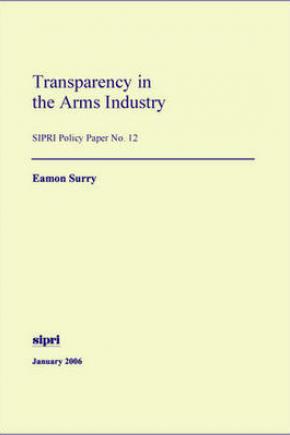Transparency in the Arms Industry
On the motley scene of today's security transactions, the private sector, and particularly the arms production industry, is easily typecast as the villain. Considering what strong feelings the question of armaments raises, however, it is remarkable how little researchers—or the public at large—actually know about what is produced and by whom. This problem of transparency is what this Policy Paper focuses on, and it is far from being an abstruse or secondary issue. Without proper information, no judgement is possible, and without judgement, any attempts at policy control—national, international or by civil society at large—will lack foundation and grip.
Via an analysis of the current state of the arms industry, this Policy Paper surveys the variations and gaps in transparency practice, speculates on their reasons, and makes a strong case for seeking global improvements on the basis of explicit and binding norms and voluntary disclosure. A case study of the arms industry in South Korea illustrates the findings of this Policy Paper.
1. Introduction
2. The demand for and supply of information
3. Case study: Transparency in the South Korean arms industry
4. Conclusions

